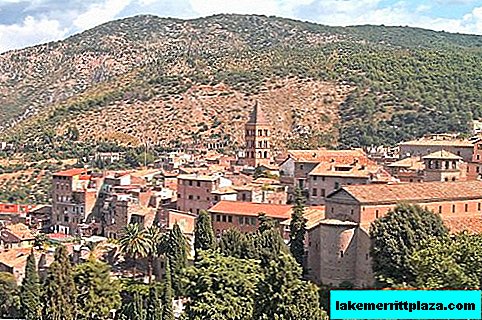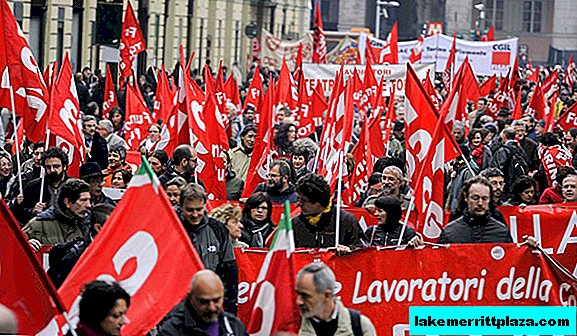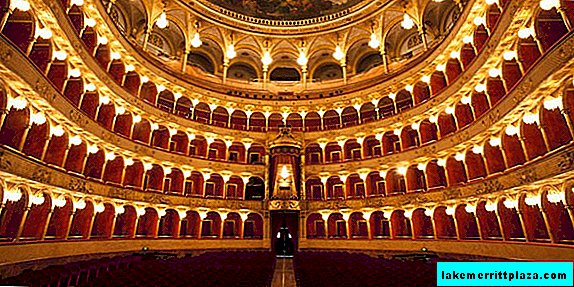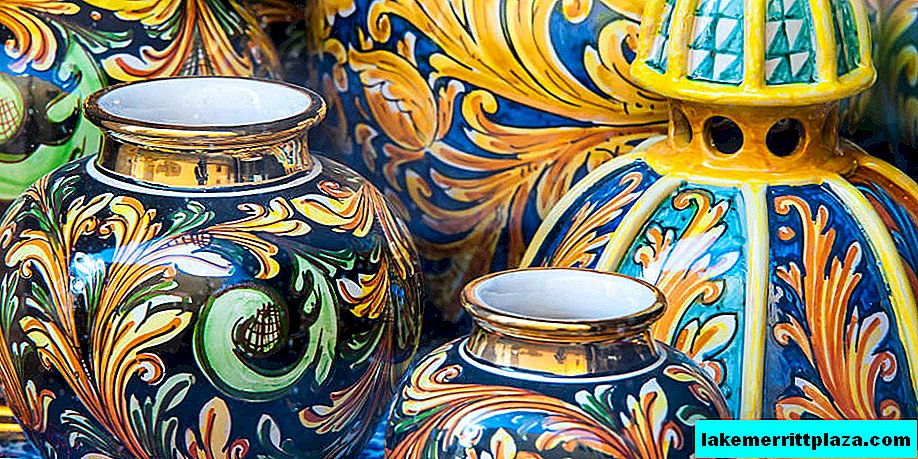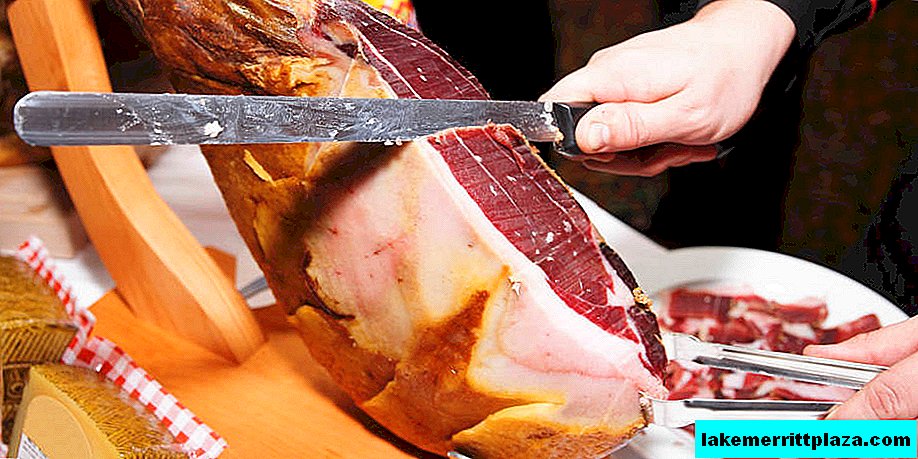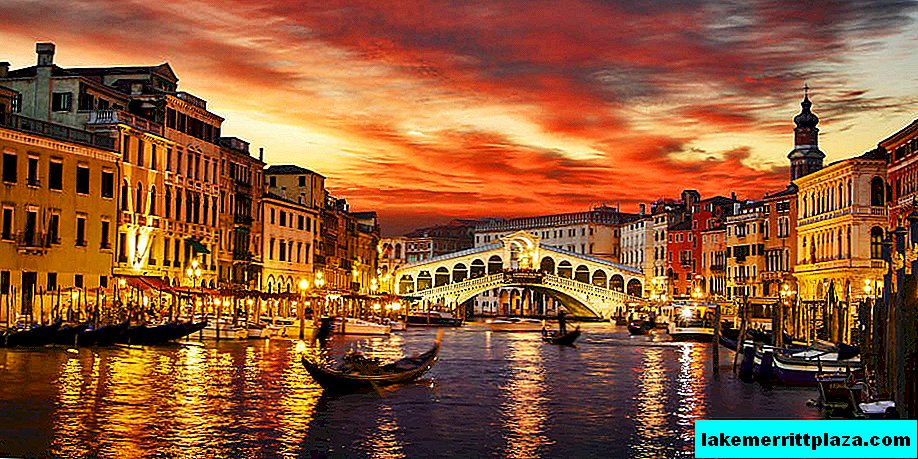In the last issue, we talked about how the civil war in the Republic went to the next round - the troops of the triumvirate were in full swing preparing to land in Greece, where Brutus and Cassius had entrenched themselves, who had managed to travel through many eastern provinces very useful and informative.
Cassius, having received a text message from his partner, was going to the rescue. After a blitz meeting, they decided to strengthen the defense on the ground and starve the enemy. For the success of the first part of the plan, Cassius drove to the island of Rhodes, who recklessly decided to support the triumvirate, where after the assault he imposed a small mass execution, and also demanded a contribution from the defeated not only horse, elephant-sized, from which the island's economy did not recover.
Everything in the name of democracy, of course - that’s how the conqueror motivated the meaning of his actions.
Brutus, meanwhile, crushed the opposition in Turkey, smashing the ancient city of Xanthos brick by brick. Having suppressed all possible misunderstandings in the rear, the conspirators set about the second part of the plan. The mighty Republican fleet cruised into the sea in the hope of hindering the landing of the horde of the triumvirate, but if it doesn’t work, then at least stop them from delivering food and reinforcements. As expected, the first did not work out - somehow avoiding a possible unpleasant meeting at sea, a large army of newly minted tyrants crawled towards the enemy. But with the blockade, everything turned out better for Brutus and Cassius - their seafarers were more numerous and experienced, and for the fleet of Anthony and Octavian hard times came, full of sadness and something salty on the face.
The horde, however, pearl forward, despite the lack of rich prey, bad weather and difficult conditions of the campaign. The conspirators retreated to the east, hoping to take the attackers by starvation, following the example of Kutuzov, but their personnel failed. The veterans, experienced and vicious legionaries who idolized their dead commander, went to the assassins of Caesar. “Under Kandahar,” they saw something else like that, so for the sake of revenge the tyrano-killers could suffer a little. But the Republicans had more or less sane seniority positions, young aristocrats, determined to win the unfading glory of the defenders of democracy and the ideals of old Rome in battle. It’s generally not bad to have motivated fighters, but not when you need to retreat for a long time.
The climax came under the city of Philippa. Anthony and Octavian, who by that time had been very successfully ill and moved exclusively on a stretcher, ran into two fortified camps on both sides of the road and stood at a distance, in local swamps - there was no better place. Small skirmishes began between the army of Anthony and Cassius, which completely depleted the patience of the young aristocracy in the Brut camp - well, it’s enviable! On October 3, 42 BC, without an order, without really informing anyone, Brutus' army screamed and ran to destroy Octavian's troops (he was closer) and earn reputation points.
Gaius Julius still did not get rid of that moment, Anthony did not immediately understand what the neighbors were doing, so the attackers reached their goal - they tear down the enemy’s headquarters, chopped the enemy’s meat salad, and deprived poor Octavian of their favorite stretcher, yes so that he barely managed to hobble deep into the swamps.
Mark Anthony pretty surprised at what happened, as, by the way, and his immediate rival Cassius, who was not notified of any plan of attack for his absence. Quickly figuring out the alignments on the battlefield, the triumvir did not wait for the end of the meat grinder in the camp at Octavian, but instead moved with all his might to Cassius. At first, he thought that these were the next small “mosquito bites” that the parties had been exchanging for some time, and he did not immediately realize the seriousness of the situation. When it dawned on him that something extremely unpleasant was going on, it was too late - Anthony was crushing his camp with might and main, and he had to retreat.
Moving to the nearest hill, Cassius frantically looked around, trying to understand what was happening at all ?! The landscape around was unsightly - from all sides powerful armies fiercely kneaded each other and dirt underfoot, and the balance of power was completely incomprehensible. Brutus, who at that time had come to himself in surprise and tried to somehow streamline what was happening, tried to help his partner and sent a cavalry detachment to him to pull him from the surrounded hill. In the eyes of Cassius, this maneuver received a completely different meaning. Not recognizing his own (which is not surprising, the uniform is typical), the commander considered that the battle was lost completely, Brutus was crushed - there, someone is still being cut there, and a special team from Anthony is flying to him, who will now take him a prisoner, and then he will hand him over to his abominable wife for torture and scolding (everyone was aware of Cicero). Therefore, inspired by the example of Kotovsky from a famous joke, but without a fork at hand, Cassius ordered the slave to cut his throat.
Anthony's offensive, meanwhile, completely choked after the arrival of a fresh pack of young blood from Brutus, and he dug into the swamp in the footsteps of Octavian, to sit back and collect the survivors.
Republicans could celebrate victory, if Cassius was not myopic determination - she left many in painful bewilderment.
Further Brutus planned to act according to the old idea - to gain a foothold in the camp and wait until the supplies of the triumvirate finally ran out. The weather was getting worse, winter was near, plus the Republican fleet finally gouged the enemy’s ships, and Anthony and Octavian would soon really have to switch to pasture. Trying to convince the army of the effectiveness of this plan, Brutus promised all the soldiers a lot of money and at the same time half of Greece to plunder (the Greeks were very offended, not expecting such a vile from the Democrats-liberators, but their opinion did not bother anyone). It didn’t work out. Inspired by the results of the first battle, both the officers and the rank and file demanded the continuation of the banquet and did not want to wait for winter at all.
Anthony and Octavian had regrouped by that time, strengthened themselves and were preparing for a decisive battle - they knew best that they could not survive without supplies, and the inclination of Brutus' army to solve all problems with a frenzied onslaught by that moment became clear. The late Cassius, moreover, enjoyed much greater authority, and had more experience in battles. Taking advantage of the fact that he was out of the field, the triumphs, sitting in their swamp, turned to methods of psychological pressure, regularly inviting enemy soldiers to either stop pulling the cat for testicles and give up already, or leave the fence and fight humanly.
Tactics bore fruit. On October 23, Brutus' army, according to the old method, ran into the camp of Octavian and Anthony, and it immediately became clear that without Cassius, the Republicans were greatly deprived of command and control. The triumvirate delivered the opponents in advance with a prepared strike and came to visit them already - the "liberators" were defeated, and Anthony drove them through Greek landscapes for a long time. Brutus, who managed to retreat with the 4 legions, lost their confidence and was forced to follow the example of Cassius. The dictators, contrary to custom, treated the soldiers of the vanquished very gently and for the most part included them in their army, promising the golden mountains. True, they had to execute those who were especially zealous, but who did it stop when.
The second battle of Philippi put an end to the Roman Republic. Octavian and Anthony celebrate victory and didn’t take a good look at the third triumvir, Lepidus, Brutus’s head swam to Rome as evidence of victory, the eastern provinces devastated in the name of democracy tried to recover.
What will happen next?
We will find out soon.
History Fun for Italy for Me.

